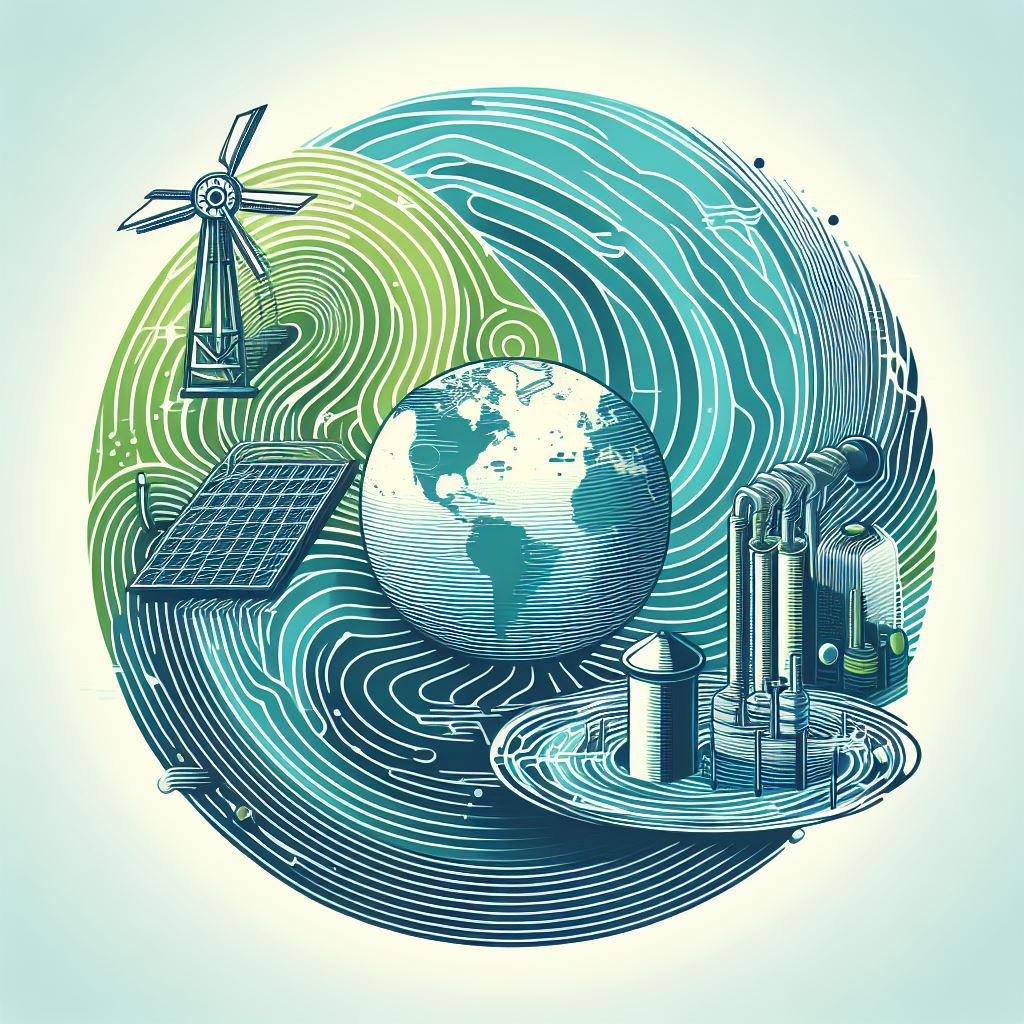Welcome to this week’s edition of the “Our Future Water” newsletter, focusing on “Green Economy and Sustainable Development.” As the global community strives for sustainable growth, the concept of a Green Economy is gaining traction. This is not merely a fashionable phrase but an imperative framework for integrating economic development with environmental stewardship and social well-being. We are discussing a paradigm that minimizes environmental risks while promoting social equity and prosperity. This edition explores how the Green Economy intersects with water sustainability, managing the water-energy-food nexus and creating a future where the planet’s and its people’s well-being are secured.
Insights
Green Economy and Sustainable Water Management
A green economy recognizes the critical role of water. As defined by the United Nations Environment Programme (UNEP), a green economy aims to balance human well-being, social equity, and environmental sustainability. Such an approach views water not merely as a resource but as a form of natural capital—a critical economic asset and a source of public benefit. Water management in a green economy is adaptive and integrates technologies and strategies that are low-carbon, resource-efficient, and socially inclusive. Such sustainable water management systems can protect water quality, maintain ecosystem health, and ensure equitable access to this life-giving resource. Discover how the United Nations Environment Programme (UNEP) redefines economic growth through its green economy model.
Managing the Water-Energy-Food Nexus in the Green Economy
The interconnectedness of water, energy, and food systems forms the basis of the water-energy-food nexus. The green economy framework considers the synergies and trade-offs among these sectors. A nexus approach aims to use resources efficiently while achieving policy coherence that supports green growth. This means investing in technologies and infrastructures that fulfil growing demands and contribute to all three sectors’ overall resilience and sustainability. The objective is clear: a balanced, resilient, and efficient system that maximizes environmental quality and social inclusiveness. Explore how Germany’s Blue Angel Label certifies eco-friendly products to drive environmental progress.
Beyond Traditional Growth: The Role of the Water-Energy-Food Nexus in the Green Economy
Traditionally, economic growth has often come at the expense of environmental sustainability. The green economy challenges this notion by promoting a low-carbon, efficient, and clean model in production. In such an economy, the water-energy-food nexus isn’t a challenge but an opportunity for synergy. We can achieve a more resilient and equitable world by embracing technologies and strategies that improve efficiency across these sectors. This approach ultimately leads to a better quality of life, safeguarding the planet’s and its people’s well-being. Read about how Melbourne Water’s plant turns sewage into renewable energy, cutting emissions.
The shift towards a green economy and sustainable development is desirable and essential. These insights aim to shine a light on the crucial intersections between the green economy, water sustainability, and the water-energy-food nexus. They point the way toward a future where sustainable development is not just an ideal but a concrete reality. Thank you for joining us in this critical conversation.


Comments are closed